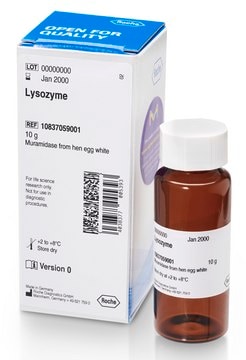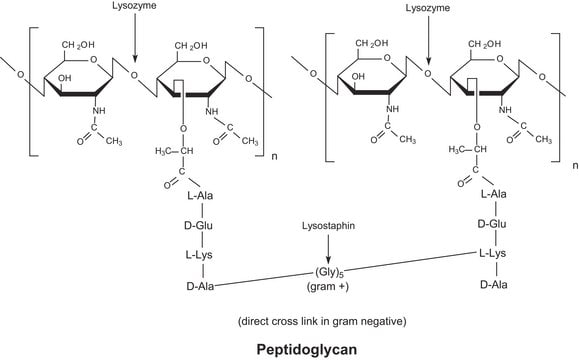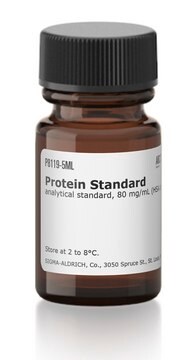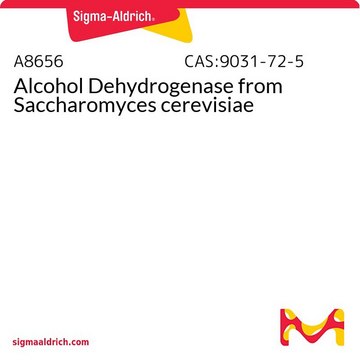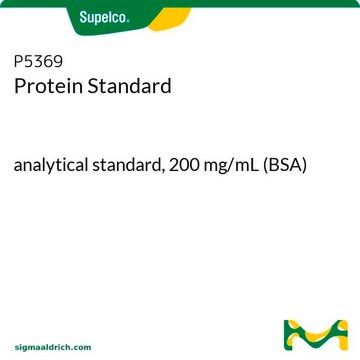L6394
Lysozyme human
lyophilized powder, ≥100,000 units/mg protein
Synonym(s):
Mucopeptide N-acetylmuramoylhydrolase, Muramidase
Sign Into View Organizational & Contract Pricing
All Photos(1)
About This Item
CAS Number:
MDL number:
UNSPSC Code:
12352204
Recommended Products
form
lyophilized powder
specific activity
≥100,000 units/mg protein
composition
Protein, ~10% E1%/280
UniProt accession no.
storage temp.
−20°C
Gene Information
human ... LYZ(4069)
Looking for similar products? Visit Product Comparison Guide
Unit Definition
One unit will produce a ΔA450 of 0.001 per min at pH 6.24 at 25 °C, using a suspension of Micrococcus lysodeikticus as substrate, in a 2.6 mL reaction mixture (1 cm light path).
Physical form
Lyophilized powder containing sodium phosphate and sodium chloride
Preparation Note
Derived from human milk
Other Notes
View more information on enzymes for complex carbohydrate analysis at www.sigma-aldrich.com/enzymeexplorer
Storage Class Code
11 - Combustible Solids
WGK
WGK 3
Flash Point(F)
Not applicable
Flash Point(C)
Not applicable
Choose from one of the most recent versions:
Already Own This Product?
Find documentation for the products that you have recently purchased in the Document Library.
Zhe Wang et al.
The journal of physical chemistry. B, 117(4), 1186-1195 (2013-01-11)
High-resolution inelastic X-ray scattering was used to investigate the collective vibrational excitations in hydrated lysozyme powders as a function of hydration level and temperature. It is found that the samples with strong enzymatic function are "soft", in the sense that
Sven O Dahms et al.
Acta crystallographica. Section D, Biological crystallography, 69(Pt 2), 284-297 (2013-02-07)
Heavy-atom clusters (HA clusters) containing a large number of specifically arranged electron-dense scatterers are especially useful for experimental phase determination of large complex structures, weakly diffracting crystals or structures with large unit cells. Often, the determination of the exact orientation
Yashwanth Ashok et al.
Methods in enzymology, 520, 175-198 (2013-01-22)
G-protein-coupled receptors (GPCRs) represent a major class of receptors through which a number of signals ranging from photons to large glycoprotein hormones are recognized. Human genome encodes about 800 GPCRs, yet very little structural information is available on this class
Masaki Honda et al.
Transplantation, 95(4), 551-558 (2013-02-21)
Neutrophils are considered responsible for the pathophysiologic changes during hepatic ischemia-reperfusion (I/R) injury; however, few studies have examined real-time intravital neutrophil recruitment. Here, we show a method for imaging the neutrophil recruitment in hepatic I/R injury using two-photon laser scanning
Tao G Dong et al.
Proceedings of the National Academy of Sciences of the United States of America, 110(7), 2623-2628 (2013-01-31)
Type VI protein secretion system (T6SS) is important for bacterial competition through contact-dependent killing of competitors. T6SS delivers effectors to neighboring cells and corresponding antagonistic proteins confer immunity against effectors that are delivered by sister cells. Although T6SS has been
Our team of scientists has experience in all areas of research including Life Science, Material Science, Chemical Synthesis, Chromatography, Analytical and many others.
Contact Technical Service